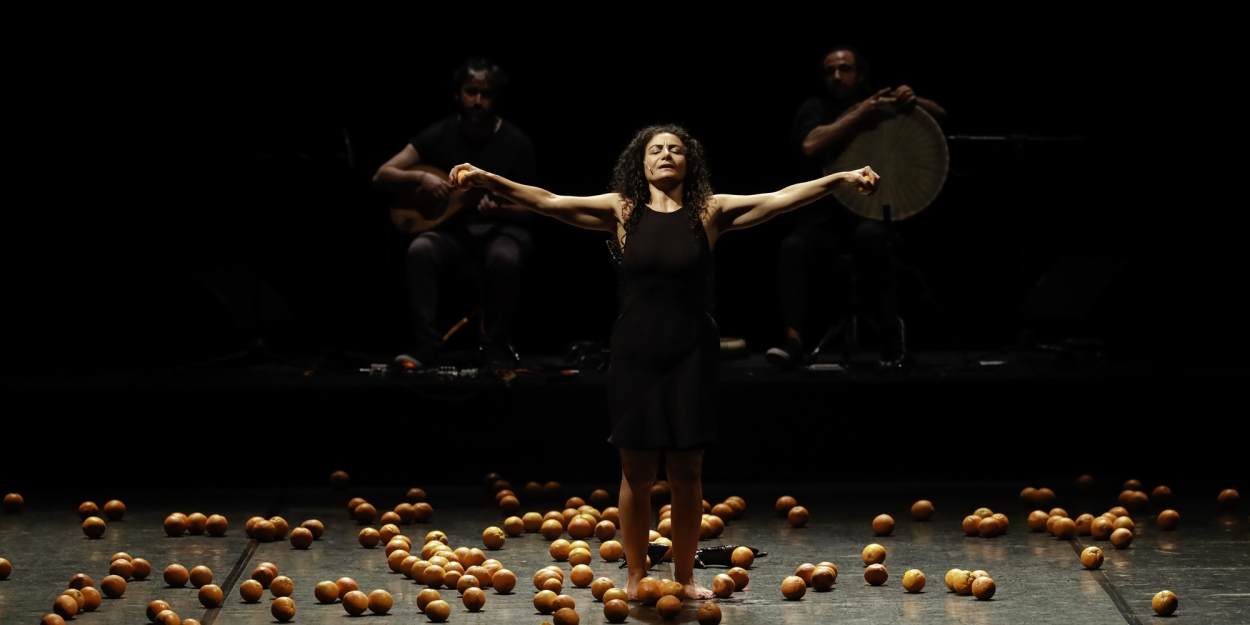Review: I M E D E A, Stone Nest
A bloody and occasionally glorious mess.

![]() There’s no telling of the ancient Greek story of Medea that ends well.
There’s no telling of the ancient Greek story of Medea that ends well.
There are many versions but, in all of them, everything starts off like a Hollywood action adventure: the hero Jason seeks the golden fleece and, with the vital help of the adoring Medea at each stage, he faces flaming oxen, mystic soldiers and a fiery dragon. Jason gets his treasure then the pair flee from Medea’s father with Medea eventually forced to kill her own brother. Over a decade, the lovers travel together, marry and have two children. Their adventures lead them to Corinth where Jason abandons Medea for the king’s daughter. In a bloody finale, Medea takes revenge by killing the two children she had with Jason.
Sabab Theatre add another version to the pile with this two-handed take on I ME D E A, this time with the tale transposed to the present. Hala Omran was an utter marvel last year in the Royal Court’s Two Palestinians Go Dogging and she returns to the London stage with another blockbuster performance. This time around she portrays Medea as the central figure with all the male characters (including Jason and the king) played by writer and director Sulayman Al Bassam. The pair complement each other with Omran a stoic figure holding in a barely controlled fury which explodes at the end while, opposite her, Al Bassam is a more overtly dramatic performer, his histrionic style being distinctly from the Pastrami school of acting (beefy yet hammy at the same time).
Adding a deeply sombre tone to this play is the iconic venue itself. This Grade II listed former Welsh Presbyterian church on Shaftesbury Avenue was converted into the Limelight in 1985 and became a hotspot for celebrities of the era like George Michael, Spandau Ballet and Duran Duran. Bob Geldof had his stag do here before marrying Paula Yates and Prince was known to have his after parties in its once-consecrated space. It ceased operations as a nightclub in 2009 and in 2010 was squatted by the Oubliette Collective who put on cabaret performances with many future stars. Since then, it has been under the aegis of arts charity Stone Nest and there is still a feeling of history and mystery about the place: God and Geldof have not been seen here for decades but the landlord have plans to turn the building into a performance venue, bar and restaurant.
Back to I ME D E A. Al Bassam’s writing is as excessive and expansive as his acting. Like a happy Italian mama throwing confetti at a wedding, he tosses in a slew of modern references (detoxing, TV interviews, climate change, social media), languages (English, French and Arabic) and global concerns (FGM, mass migration and terrorism) as well as some meta-dialogue on how he first saw the story of Medea in the cinema at a young age and the international and legal aspects of his recent divorce. Omran is a rock throughout aided by a stirring soundscape care of Two, or The Dragon (Abed Kobeissi and Ali Hout).
I M E D EA has a strong aesthetic and, despite a dragging final third, a memorable ending. The last scene sees Medea face the audience standing with arms outstretched in a Christ-like pose gripping a blood orange in each hand. With eyes that could lay waste to a legion of dragons, she clutches tighter and tighter around the fruit until they suddenly burst open and a citrus smell wafts over the audience. We are left with a physical summation of the show: a bloody and occasionally glorious mess.
Photo credit: Ivan Nocera
Reader Reviews
Videos

